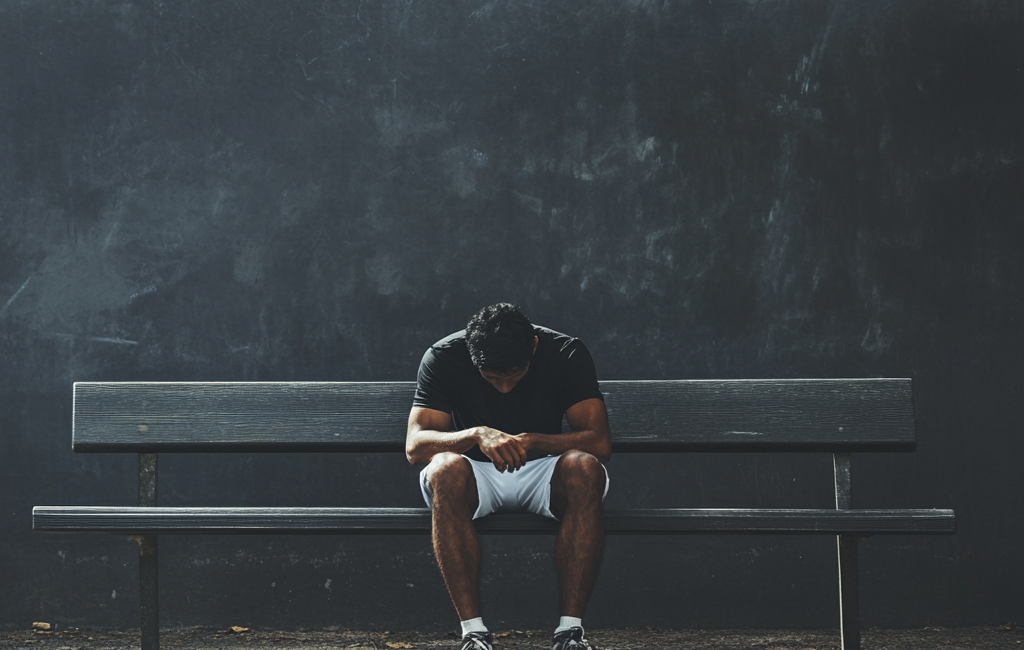The Reality Behind the Glory
When we see athletes celebrating victories or breaking records, it’s easy to assume they’re living their best lives. But behind closed doors, many of these same athletes fight a battle that no amount of training can fully prepare them for – depression. From Olympic champions to professional players, mental health challenges don’t discriminate.
Why Do Athletes Face Depression?
Think about it: Athletes deal with unique pressures that most of us can’t imagine: • Non-stop pressure to be perfect • Living life in the public eye • Pushing their bodies to the limit • Feeling like their whole identity is their sport • Constant worry about injuries • Missing out on normal life experiences
How to Spot the Signs
If you’re an athlete, watch out for these warning signs:
- Losing interest in your sport
- Having trouble sleeping
- Feeling constantly tired
- Not wanting to hang out with teammates
- Performance dropping for no clear reason
- Feeling sad or empty most days
Real Talk from Real Champions
Remember when Michael Phelps, the most decorated Olympian ever, opened up about his depression? Or when Naomi Osaka stepped away from tennis to focus on her mental health? These brave athletes showed us that it’s okay to not be okay, even when you’re at the top of your game.
Fighting Back: What You Can Do
1. Get the Right Support
- Talk to a sports psychologist
- Join support groups with other athletes
- Stay close to family and friends
- Connect with teammates who understand
2. Take Care of Yourself
- Get enough sleep (yes, it really matters!)
- Eat well
- Take rest days seriously
- Find hobbies outside your sport
3. Build Your Mental Strength
- Try meditation (even 5 minutes helps)
- Write in a journal
- Practice positive self-talk
- Set realistic goals
Making It Through Each Day
Morning:
- Start with a few deep breaths
- Think of one good thing ahead
- Eat a good breakfast
- Take your time getting ready
During Training:
- Focus on small wins
- Take breaks when needed
- Talk to your coach if you’re struggling
- Remember why you love your sport
Evening:
- Wind down properly
- Stay off social media before bed
- Get ready for tomorrow
- Connect with loved ones
Breaking the “Tough It Out” Myth
Being strong doesn’t mean suffering in silence. Some of the toughest athletes in history have asked for help when they needed it. That’s not weakness – that’s wisdom.
Where to Find Help
• Your team doctor or psychologist • Trusted coaches • Professional counselors • Mental health hotlines • Support groups for athletes
Remember This
You’re not alone in this fight. Depression is like any other injury – it needs proper treatment and time to heal. Your worth isn’t measured by medals or trophies, and asking for help makes you stronger, not weaker.
Moving Forward
Recovery is possible. Many athletes have walked this path before and come out stronger. Take it one day at a time, celebrate small victories, and keep moving forward.
Need Help Right Now? Don’t wait – reach out. Talk to someone you trust, call a mental health hotline, or speak with your team doctor. The first step is the hardest, but it’s worth taking.
You’re more than an athlete – you’re a person first. And just like training your body, taking care of your mind is essential for success both in and out of your sport.
Remember: Champions aren’t just made by what they do in competition, but by how they take care of themselves every day. Your mental health matters just as much as your physical health – maybe even more.
This isn’t the end of your story – it’s just a chapter. With the right support and tools, you can write the next one on your own terms.
